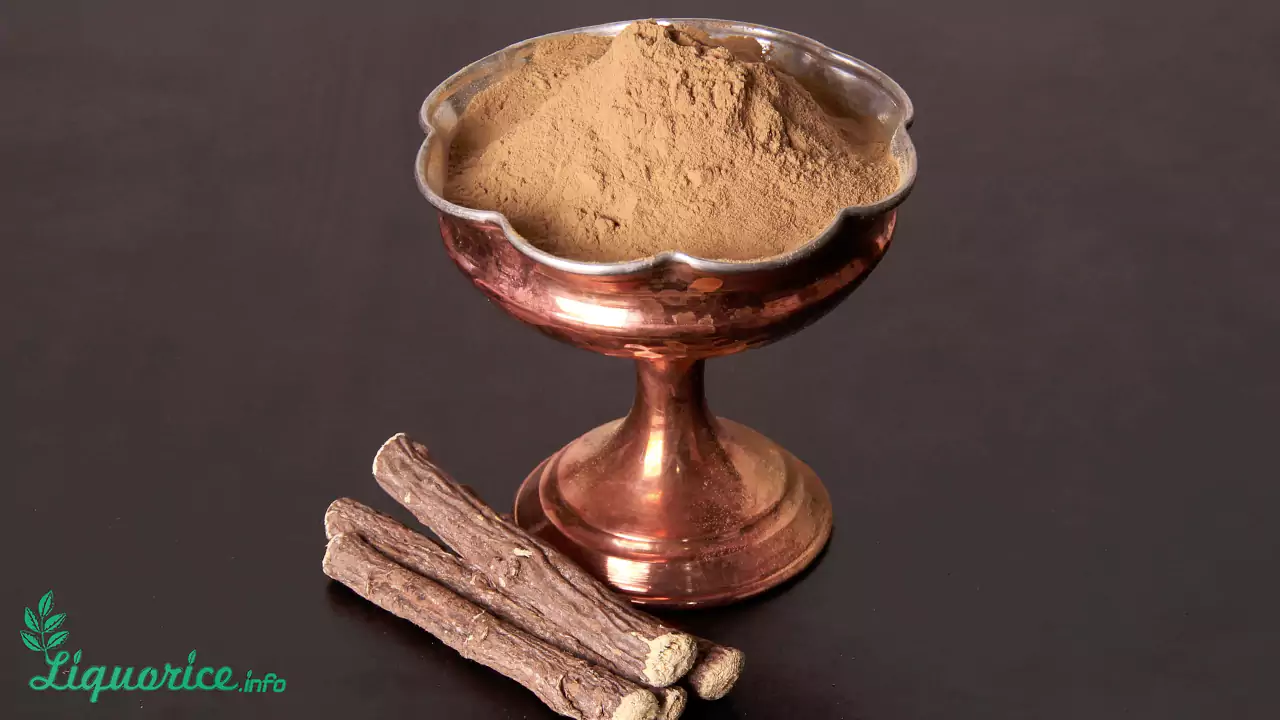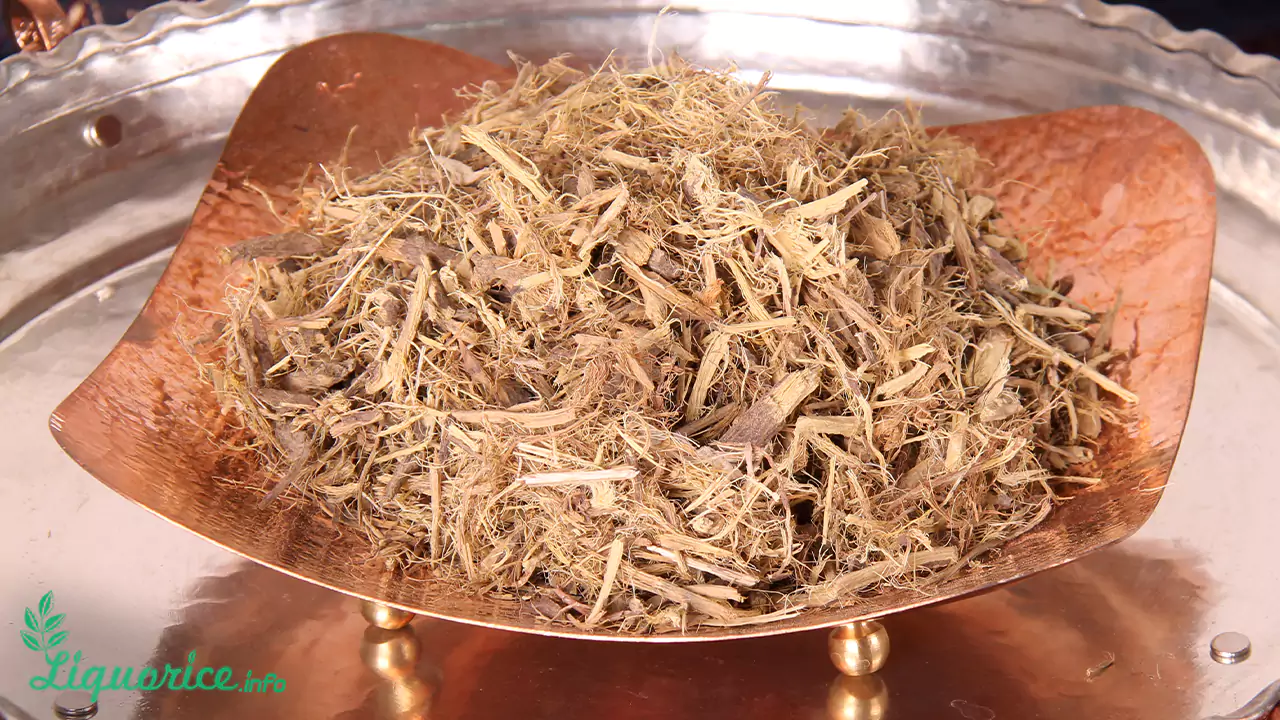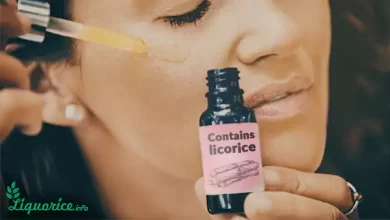licorice in pharmaceutical industry
Licorice Toothpaste and Mouthwash

Licorice is a wild plant that is mainly found in south parts of Europe, North Africa and some parts of Asia including Iran. Licorice is a perennial herb which has been consumed in cooking and traditional medicine for a long time. Licorice medicinal effects have always been considered prominent in traditional and modern medicine.
Licorice contains vitamins B and E and minerals such as potassium and magnesium, sterols, amino acids etc. Licorice has got isoflavonoid, flavonoid and saponin.
Glycyrrhizin is the main component of licorice. It is the agent of sweetness in licorice. It is about 50 times sweeter than sugar.
Sepidan Osareh Jonoob Co. discusses “licorice in pharmaceutical industry” in this article.

Licorice Toothpaste and Mouthwash
Some plants have been used for oral and dental health for a long period of time. Licorice is one of these plants. Since it has anti-bacterial, anti-viral, anti-inflammatory properties, it is proper for dental diseases like: aphthous ulcers, gingivitis, dental caries, periodontitis. It prevents cavity and tooth decay by fighting against special bacteria.
Licorice is used in toothpaste, mouthwash and tooth gels.
Licorice in Skincare Products
licorice leaves and extract have a positive effect on the treatment of skin infections. Licorice extract prevents infection and contamination on the skin surface and keeps it clean. Licorice contains a substance which has anti-inflammatory and anti-bacterial properties and is effective in treating acne, eczema and psoriasis. On the other hand, this plant reduces skin sensitivity and redness. Due to these characteristics, licorice is effective in treating psoriasis, acne, eczema and other problems. Studies showed that licorice acts as a powerful agent in controlling pigments. Hyperpigmentation is caused by the abnormal collection of pigments, making some dullness and blemishes appear on the surface of skin. Using licorice is a proper solution for this problem. This plant contains flavonoids that disperse melanin on the skin surface, which in turn brightens the skin and removes blemishes. Fading or disappearance of these spots is due to the presence of a substance called Glabridin in licorice.
Licorice root has many benefits for hair and one of them is the treatment of dryness and oily scalp.
licorice is used for sensitive skin and to treat dandruff. It can prevent hair loss and make our hair grow faster. The use of this plant opens the pores of the scalp and strengthens the hair follicles. It prevents thinning hair strands. It is also used to repair damaged and colored hair.
In Indian traditional medicine, this plant has been used for better hair growth and prevention of hair loss. Based on Sepidan Osareh Jonoob Company’s surveys, licorice extract is rich in antioxidants, so it is anti-aging and rejuvenating; it helps regenerate collagen to keep our skin soft and smooth. This plant also prevents skin sagging and removes wrinkles under eyes and keeps skin moisture. According to studies, an active antioxidant (Licochalcone A), which is the main ingredient in licorice root extract, is able to protect the skin against UV rays, and this is done by strengthening the skin’s own defense system. In fact, the skin’s defense system is stimulated by the use of licorice extract. In addition, it leads to the production of more antioxidants.
Licorice contains enzymes that act as a skin protector against sunlight.
Due to these properties, licorice is used in creams, sunscreens, ointment, topical gels, lotions and other skincare products.
Licorice and Digestive System Medicines
There is a component in licorice called glycyrrhizin, which is useful in treatment of stomach pain, indigestion, heartburn and acid reflux. licorice in various forms is used to treat some digestive problems. It can be useful in treatment of bacterial and viral infections. Peptic ulcers in intestine and stomach are caused by inflammation with bacteria. Licorice root and its glycyrrhizin are useful in treating peptic ulcers. Licorice due to some flavonoids like Glabridin and Glabrene, has positive effects on soothing stomach disorders such as stomach pain and heartburn. H.pylori is the bacteria causing the inflammation that leads to peptic ulcers. The glycyrrhizin in licorice can heal the sores and H. pylori. Acid reflux plays an important role in food digestion; but it can be annoying when it goes up the esophagus and causes pain and heartburn. Taking licorice controls acid reflux and prevents heartburn. Licorice enhances the secretion of serotonin and prostaglandins in stomach which leads to disinflation.
Licorice in pharmaceutical industry can be used in digestive medicines like tablets, syrup, capsules, laxatives etc.
Licorice in Other Drugs
Licorice is used in a vast variety of drugs such as pills, cough syrup, lozenges, spray, capsules and so on. Licophar (a kind of pill for cough and sore throat), Reglisidin (an oral drug for inflamed stomach), Altadin (a tablet for treatment of inflammation of mucous membranes and throat), are examples of drugs in which licorice is used. In Iran, many formulations are produced from licorice nowadays. “D-Reglis” is a pharmaceutical product in which licorice is used and prescribed for prevention of peptic ulcer. “Mentazin” pill is another drug used to ease gastrointestinal pain and gastric ulcer. It is used also as a laxative agent. “Reglis” tablets are used to treat gastric and duodenal inflammation.
Licorice for Cough, Sore throat and Respiratory Diseases
A few studies show that Glycyrrhizic, Asiatic and Oleanolic acids in licorice root can slow the progress of bronchitis.
Licorice root has been widely used to treat bronchial asthma for many years. One study on mice showed that glycyrrhizin can improve all established chronic histopathologic changes of lung.
Airway inflammation is a common problem in respiratory related diseases such as asthma. Licorice has some anti-inflammatory compounds that are helpful in treatment of these sicknesses.
Licorice in the form of tea, lozenge, spray, syrup is very common to soothe sore throat and reduce cough.
Licorice Effects on Menopause and Polycystic Ovary
One of the menopausal symptoms is the feeling of sudden warmth in women’s face, neck and chest. The skin becomes red and starts to sweat. This causes a kind of uncomfortable and annoying condition which women constantly complain about. Research on menopausal women indicates that licorice root positively affects reducing hot flushes. One survey proved that licorice decreases serum testosterone. So, it is a proper remedy for hirsutism and polycystic ovary syndrome.
Licorice and Hepatitis C
Hepatitis C causes inflammation and liver damage if it isn’t cured for a long time. Glycyrrhizin in licorice root fight against this disease and may be helpful in its treatment. One study on rats prove that licorice extract is able to prevent liver oxidative injury. Actually, it acts as a chemo preventive and has a positive effect on hepatic damage. Licorice is consumed in some Hepatitis C drugs.
The Effect of Licorice on Cancer
Using licorice has positive effects on cancer. It can slow down the growth of cancer in body. It also relieves the pain of chemotherapy treatment. As a result of chemotherapy, some sores in patients’ mouth appear that they are painful and irritating. Taking licorice can ease this pain. Licorice is used in some drugs related to cancer.

Written by: Sepidan Osareh Jonoob Co.
Edited by: Meysam Shokripour
References : iranlicorice.com





